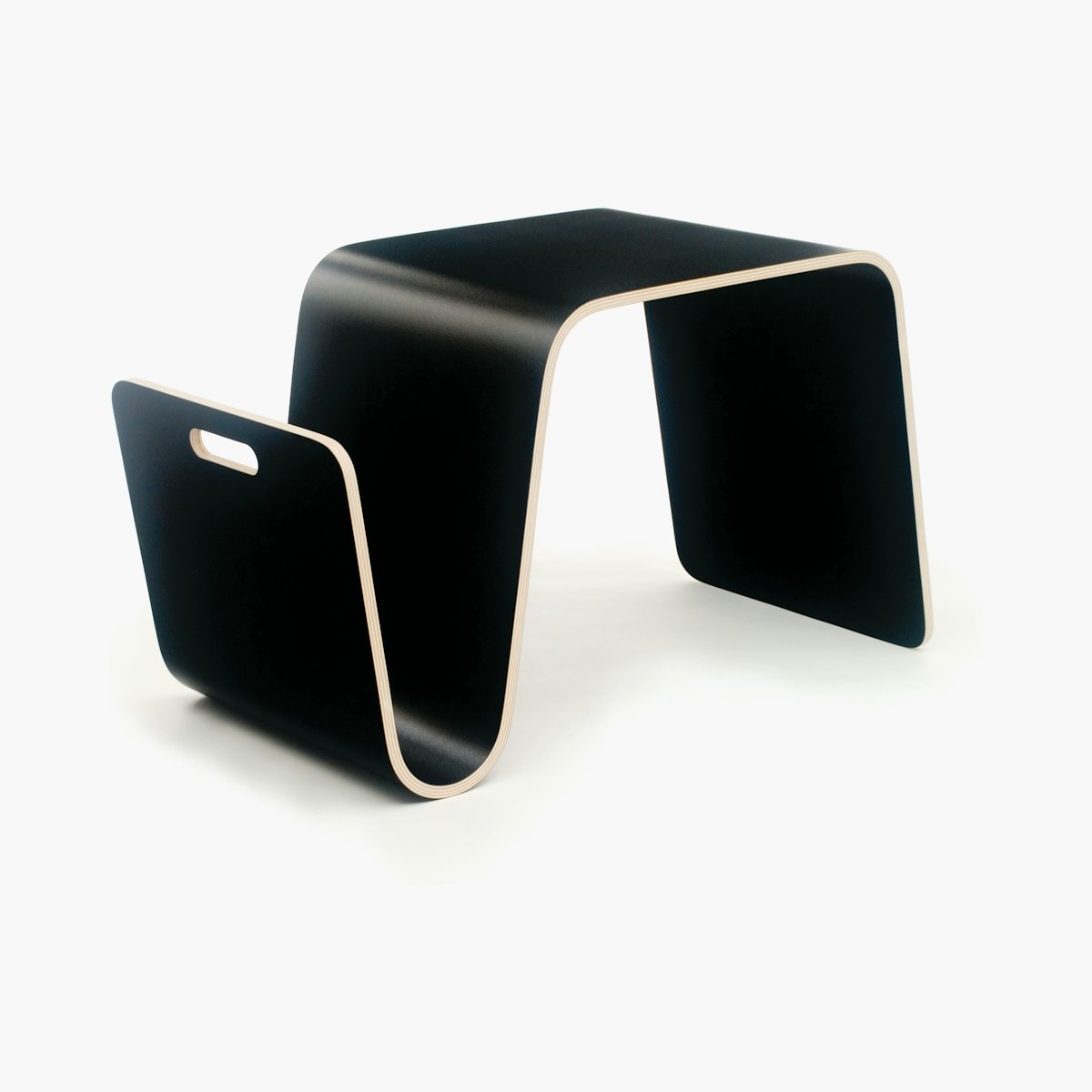Industrial designer Eric Pfeiffer was his own first client. When he was in eighth grade, he wanted a snowboard he didn’t have the money to buy, so he designed and made one himself, in the process undertaking what he calls his “first experiments in molding plywood.” Growing up among a family of artists, builders and contractors, Pfeiffer “was taught at a very early age to make things and shown how to solve problems through building and shaping the environment around you.” Pfeiffer went on to earn a bachelor’s in landscape architecture from California Polytechnic State University in San Luis Obispo and attended graduate school at the Rhode Island School of Design. “I definitely knew I wanted to be a furniture designer,” he says. “The path has been a challenge at times, with twists, turns and fun along the way.”
By 2000, Pfeiffer was vice president of design for Offi, overseeing product design, development and innovation, and in 2005 he moved on to found Pfeiffer Lab, his own Oakland-based design studio. Through Pfeiffer Lab, Pfeiffer and his team create what he deems “essential objects” – products that serve everyday needs well while also being elegantly designed, materially conscious and timeless, ranging from furniture to toys, tools and tabletop items. One of those essential objects is the Mag Table (1999), a multifunctional molded-plywood piece that works as a side table, laptop stand or stool, depending on how it’s positioned. Says Pfeiffer, “Our studio is very focused on addressing the evolving challenges of the workplace,” while at the same time working “to create closer connections between where things are made and the people who use them.” Pfeiffer has worked on products and projects with Burton Snowboards, Gap, Google, Loll Design, Steelcase, OXO and Williams Sonoma.
Pfeiffer’s design philosophy, defined as “a reductive approach that creates essential forms driven by utility,” is also reflected in the midcentury Oakland home he shares with his family, a showcase for utilitarian design, as well as a platform for personal expression. Alongside select iconic pieces, including an Eames Lounge Chair and Eames “surfboard table,” sit some of his own designs. He maintains a workshop on the property, where he comes up with prototypes that often make their way into the house to be test-driven by the family.
In contrast to Pfeiffer Lab, described as “strictly a product design business in which we design and develop items for a range of brands,” the collective Corral was created by Pfeiffer with industry partners “to produce finished goods designed by myself and a range of collaborators, offering an outlet to put products directly into the market and to help emerging designers realize new ideas.” Corral extends Pfeiffer’s design ethos of wrapping together utility and beauty and executing with honest materials, resulting in a collection of everyday objects by U.S. designers that have a uniquely American aesthetic, which continues to evolve.
Pfeiffer’s reverence for plywood has only grown since he made that first snowboard, and in 2003 he co-authored Bent Ply: The Art of Plywood Furniture, about the history of bent plywood in modern furniture design. Four of his pieces are in the permanent collection at the San Francisco Museum of Modern Art.
By 2000, Pfeiffer was vice president of design for Offi, overseeing product design, development and innovation, and in 2005 he moved on to found Pfeiffer Lab, his own Oakland-based design studio. Through Pfeiffer Lab, Pfeiffer and his team create what he deems “essential objects” – products that serve everyday needs well while also being elegantly designed, materially conscious and timeless, ranging from furniture to toys, tools and tabletop items. One of those essential objects is the Mag Table (1999), a multifunctional molded-plywood piece that works as a side table, laptop stand or stool, depending on how it’s positioned. Says Pfeiffer, “Our studio is very focused on addressing the evolving challenges of the workplace,” while at the same time working “to create closer connections between where things are made and the people who use them.” Pfeiffer has worked on products and projects with Burton Snowboards, Gap, Google, Loll Design, Steelcase, OXO and Williams Sonoma.
Pfeiffer’s design philosophy, defined as “a reductive approach that creates essential forms driven by utility,” is also reflected in the midcentury Oakland home he shares with his family, a showcase for utilitarian design, as well as a platform for personal expression. Alongside select iconic pieces, including an Eames Lounge Chair and Eames “surfboard table,” sit some of his own designs. He maintains a workshop on the property, where he comes up with prototypes that often make their way into the house to be test-driven by the family.
In contrast to Pfeiffer Lab, described as “strictly a product design business in which we design and develop items for a range of brands,” the collective Corral was created by Pfeiffer with industry partners “to produce finished goods designed by myself and a range of collaborators, offering an outlet to put products directly into the market and to help emerging designers realize new ideas.” Corral extends Pfeiffer’s design ethos of wrapping together utility and beauty and executing with honest materials, resulting in a collection of everyday objects by U.S. designers that have a uniquely American aesthetic, which continues to evolve.
Pfeiffer’s reverence for plywood has only grown since he made that first snowboard, and in 2003 he co-authored Bent Ply: The Art of Plywood Furniture, about the history of bent plywood in modern furniture design. Four of his pieces are in the permanent collection at the San Francisco Museum of Modern Art.

